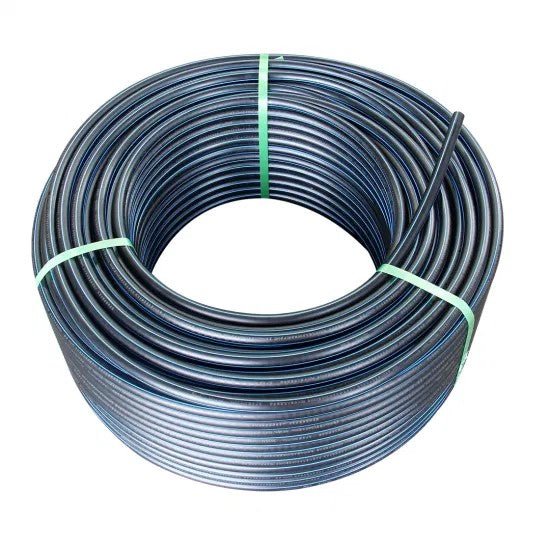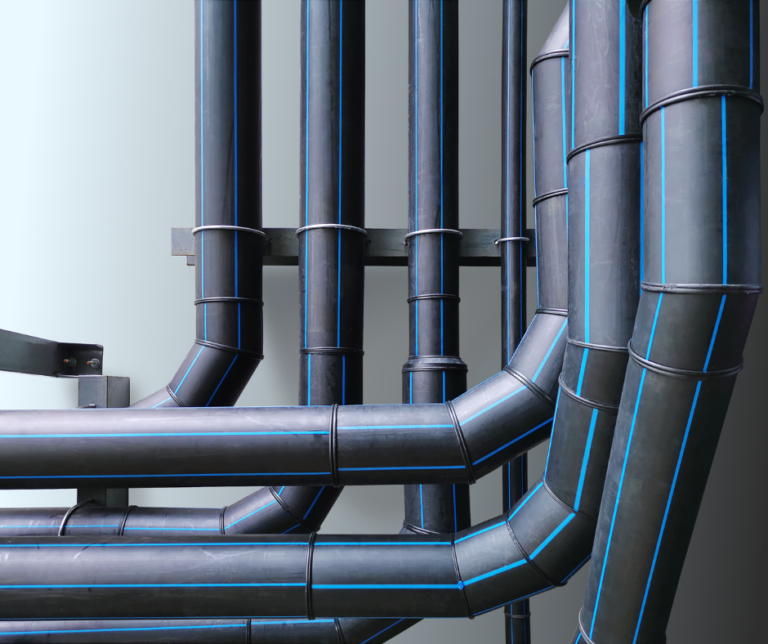Comprehending the Secret Conveniences of HDPE Pipe for Water and Wastewater Management
The usage of HDPE pipeline in water and wastewater administration offers numerous advantages that merit factor to consider. Its exceptional durability and long lifespan make it a favored choice for several tasks. Furthermore, the product's resistance to deterioration and chemical damage enhances its integrity in different environments. Nonetheless, the benefits prolong beyond simply durability and resistance. Discovering its cost-effectiveness and environmental effect reveals even extra compelling factors for its prevalent fostering in contemporary framework
Phenomenal Resilience and Long Life

HDPE pipeline stands out for its exceptional sturdiness and long life, making it a recommended selection in water monitoring systems. Built from high-density polyethylene, these pipelines can stand up to considerable pressure and anxiety, ensuring reputable efficiency gradually. Their durable nature permits them to withstand severe ecological problems, consisting of temperature level variations and dirt motions, which can cause other materials to fall short.
The life expectancy of HDPE pipes frequently goes beyond 50 years, supplying a cost-effective option for communities and markets alike. Furthermore, the material's lightweight residential properties streamline installment, reducing labor prices and durations. This longevity decreases the demand for regular repair services or substitutes, further boosting its financial appeal.
In water management applications, the integrity of HDPE pipelines means fewer interruptions and improved solution continuity, making them essential to sustainable infrastructure growth. The mix of longevity and long life solidifies HDPE's role as a cornerstone in effective water monitoring options.

Resistance to Rust and Chemical Damage
While many products succumb to rust and chemical damages over time, HDPE pipes display impressive resistance, making them optimal for numerous water administration applications. This durability comes from the molecular framework of high-density polyethylene, which is inherently non-reactive and does not rust like steels or weaken from direct exposure to severe chemicals. Therefore, HDPE is highly reliable in settings with aggressive materials, such as wastewater systems that may consist of acids, bases, and natural solvents.
Furthermore, HDPE pipelines can endure ecological variables such as soil level of acidity and saline conditions, further improving their suitability for diverse applications (hdpe pipe in stock Midland TX). Their capacity to keep structural stability over time decreases the threat of leaks and failures, which is essential in making sure the safety and security and reliability of water distribution and wastewater monitoring systems. The resistance to rust and chemical damage markedly contributes to the general efficiency and long life of HDPE piping remedies.
Cost-Effectiveness and Financial Advantages
When considering the monetary effects of water management systems, the cost-effectiveness of HDPE pipelines comes to be evident. These pipelines provide reduced installation and upkeep expenses contrasted to traditional materials like metal or concrete. Their lightweight nature streamlines transport and setup, leading to lowered labor expenditures. In addition, HDPE pipes exhibit a long life expectancy, frequently exceeding 50 years, which converts to less replacements and long-lasting financial savings.
In addition, the resistance of HDPE to deterioration and chemical damages lessens the requirement for costly repairs and substitutes. The pipes additionally sustain efficient water circulation, minimizing energy costs linked with pumping systems. By alleviating leaks and water loss, HDPE pipelines add to substantial economic advantages for communities and markets alike. Overall, the first investment in HDPE piping can yield considerable financial returns over the life-span of the water management system, making it a sensible choice for lasting infrastructure growth.
Environmental Sustainability and Reduced Influence

Convenience and Flexibility in Installment
Due to the fact that of their distinct residential properties, HDPE pipes use amazing versatility and adaptability in setup, making them suitable for a vast array of applications. Their light-weight nature enables less complicated handling and transportation, minimizing labor prices and installation time. HDPE pipes can be bent and formed to fit various terrains and project needs, which is specifically beneficial in challenging settings.
Furthermore, their resistance to corrosion and chemical damage permits installation in diverse settings without the demand for specialized safety coatings. The ability to fuse joints develops a constant, leak-free system, improving the total integrity and dependability of the installation. HDPE's versatility additionally suits ground motion, reducing the danger of damages in areas susceptible to changing dirt. On the whole, these characteristics make HDPE pipes not just versatile but likewise a recommended selection for water and wastewater management systems.
Often Asked Questions
Exactly How Does HDPE Pipe Compare to PVC in Water Administration Applications?
HDPE pipeline supplies premium adaptability, resistance to deterioration, and sturdiness compared to PVC. Its lighter weight facilitates much easier installation, while its long lifespan reduces substitute expenses, making HDPE a recommended selection in water monitoring applications.
What Is the Life Expectancy of HDPE Water Lines Under Regular Problems?
Under typical problems, HDPE pipelines can have a life-span varying from 50 to 100 years. Their longevity and resistance to rust add to their long-term performance in various applications, making them a reliable selection for framework.
Are HDPE Water Lines Recyclable After Their Solution Life?
Yes, HDPE pipelines are recyclable after their life span. Midland TX HDPE Pipe Fittings in Stock. They can be processed and repurposed into brand-new items, greatly lowering environmental impact and advertising sustainability within the industry, making them an environmentally friendly choice for piping options
What Is the Setup Refine for HDPE Water Lines?
The installation procedure for HDPE pipelines includes site prep work, trenching, pipeline blend or mechanical joining, backfilling, and pressure screening. Correct strategies ensure a long lasting and efficient system for sewer inspection near me transferring water and wastewater efficiently.
Can HDPE Piping Be Made Use Of for Both Drinkable and Non-Potable Water Equipments?
Yes, HDPE pipelines can be utilized for both drinkable and non-potable water systems. Their flexibility, resilience, and resistance to corrosion make them suitable for numerous applications, guaranteeing safe and efficient transport of water in different contexts.